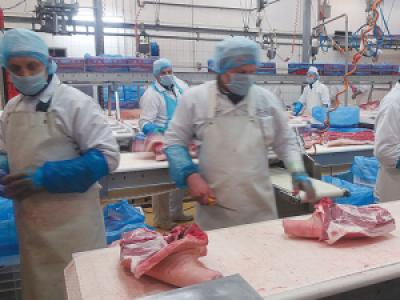Written by Rural News Group the red meat sector looks to government for action. The red meat sector has eight key priorities and believes the next government can play a key role in bringing about positive change.
Environment
• Continuing to improve the sustainability of our production is a top priority. We are committed to improving our water quality and further reducing the sector’s GHG emissions.
Our leaders recently committed to bringing New Zealand’s rivers back to swimmable levels and we are working on further ambitious targets for the environment.
The incoming government can help by:
o Working with the sector to develop environmental policies focused on the outcomes we want to achieve and that recognise different farming systems can meet these outcomes in different ways.
o We need government support with research and the tools to give us answers on the best way to build productive, sustainable environment.
Trade
• We are an export-focused sector: 90% of NZ’s sheepmeat production and 83% of beef production is exported. We continue to face major tariff and non-tariff barriers around the world that affect our competitiveness.
The incoming government can help by:
o Continued leadership on trade liberalisation, including negotiating high quality FTAs and putting resources into tackling non-tariff barriers.
Food Safety
• Food safety is critical to the meat industry and for maintaining consumer confidence. NZ is recognised as a world leading in its industry and regulatory systems.
The incoming government can help by:
o Continuing to provide government services in an efficient and cost-effective way and to maintain the high performance of NZ’s regulatory system for food safety, market access and reputational reasons.
Biosecurity
• Incursions of pests and diseases are among the biggest risks to the sector and could be catastrophic to the NZ economy.
The incoming government can help by:
o Continuing to invest in a strong biosecurity system aimed at keeping pests and diseases out and working with industry to improve capability and systems to respond to those which arrive.
Animal Welfare
• NZ has high animal welfare standards. Farmers and meat processors work hard to ensure their animals are well cared for and treated humanely.
The incoming government can help by:
o Continuing to partner with the sector to enhance the animal welfare systems in NZ and promote NZ’s good reputation in this area.
Innovation
• Huge innovation and productivity improvements have occurred in the sheep and beef sector, onfarm and in processing. The sector is committed to striving for further improvements.
The incoming government can help by:
o Continuing to partner with the sector and ensuring its investment strategies include long-term support for sheep and beef sector innovation and growth.
Employment
• We represent NZ’s largest manufacturing industry and our processing companies employ some 25,000 people nationwide. We strive to employ NZers first. Every year, however, we need to bring in about 100 Halal slaughterers to support a fundamental component of the industry’s business model and to meet Halal regulatory requirements. The processes for this are lengthy and complex and expose the industry to significant risk.
The incoming government can help by:
o Putting Halal slaughterers on the long-term skills shortage list or finding other practical solutions to provide a secure pathway to source necessary workers from overseas.
Health & Safety and Training
• Working with livestock and machinery means the sector has health and safety hazards that need to be well managed. Industry leaders are committed to improving the sector’s health and safety performance and creating a safer work place.
• Having a skilled workforce is extremely important to the sector and we are investing in training systems to upskill workers, promulgate industry standards and promote the sector as a career pathway.
The incoming government can help by:
o Supporting a strong partnership between WorkSafe NZ and industry; and
o Supporting the sector in developing new qualifications to accelerate career pathways and maintaining and expanding the funding model with the Primary ITO.
| A RuralNews release || September 21, 2017 |||





